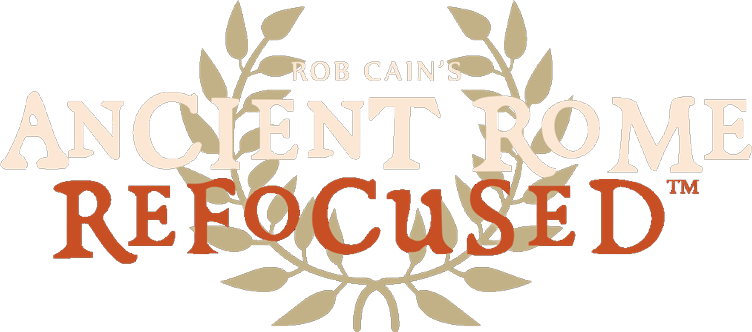Views: 15

Editor’s Note: Take a close look at this image. The imagery was developed by A.I. I asked Fred, my A.I. friend, to give me an image of “Venus sitting in Starbucks with the God Mercury.” I think it’s interesting that Mercury is depicted with three legs (which I find extraordinarily creative). Get it, right? The Messenger of the Gods has three legs. Good job, Fred.
Never Alone at Starbucks with my Smaller Classical Dictionary
Sometimes I get lonely. When sitting in Starbucks it’s nice to have something to peruse. I try to get a hold of a Washington Post, but sometimes its better to bring your own reading material. For me it’s the Smaller Classical Dictionary. It’s easily shoved in a computer bag, or a jacket pocket. It is your own personal entourage that sits with you in front of Starbucks, the doctor’s office, or that layover in Rome. I would take this book with me to London or Rome. What do I mean by ‘entourage’?When you have this classical dictionary, you have traveling companions from gods, goddesses, and mythological friends.
Don’t get it new. I recommend getting an old copy off of Ebay. Make sure the binder’s good, with a published date around the 1920s or 1940s. Antique books reek of authenticity, previous owners, and much travel. It should fit nicely into any roomy pockets, so that you can verify any emergency classical allusions. The paper is delicate. With that much age, it reverts to the delicacy of a tissue, and that is good. The Smaller Classical Dictionary should be treated like your baby. Warning: Be very careful what type of bookmark you wind up using. Anything that is magnetized is a big mistake.
Smaller was first published in 1910. It was published again in 1937 and 1947. It is a small 4 by 5 clothed bound book, the color of vintage wine. Smaller is a scholar’s dictionary and I imagine generations of students have stuffed it in their book bags as well. It’s in my book bag – why not yours.
It even has a warning label (at least in the original preface). One E.H. Blakeney writes, “…Jupiter, though a kin to, is not the same as Zeus; Minerva is no wise Athena.” He then warns vigorously to not invest Greek Gods with Latin natures.
Got that? Now remember it. It’s on the test.
Homework: I will post on this blog any submission comparing the differences between the Greek Zeus, and the Roman Jupiter. Full credit given. 500 to 2500 words.
In this book you will find entries of various lengths. Some are single sentences, others a page ½ devoted to an explanation or definition.
So far, Hercules comes up with the lengthier explanation devoting 3 to 4 pages to the hero. Those of you getting your background on Hercules from the Disney Movie you will be shocked to discover that Hercules was a far more complicated demigod that you can ever imagine. Put it this way, he was no Kevin Sorbo. The King of Persia Darius is not given such a space. The Goddess Athena does a bit better. Alexander only rates a page (what’s up with that?). Ptolemy and even Pompey do better than Alexander the Great.
The secret pleasure of this book is that you are empowered to dive into the world of lesser gods, people and places. The Smaller Classical Dictionary even opens up the work of others in their references to the classical world.
My favorite quote is from Shakespeare’s, Henry VI, part 3. I’m trying to memorize the entire speech by the way. The line I fully intended to look up is easy for the Smaller Classical Dictionary.
“…Change shapes with Proteus for advantages,”
Proteus?
Pg. 414 – Proteus, the prophetic old man of the sea. Anyone wishing to learn futurity from him was obliged to catch hold of him at that time…as soon as he was seized, he assumed every possible shape, in order to escape the necessity of prophesying…”
Got it.
“Change shape with Proteus for advantage…” –William Shakespeare, King Henry, Part 3


Having your own copy of the Smaller Classical Dictionary can bring respect from your friends and neighbors. The other day, while I was in front of Starbucks, a friend stopped by. Bob saw this old book on the table, and picked it up. Without asking he picked my book up. He had to see what I was reading, as if this would give him insight into “what I am about.” He opened the pages carefully, and saw the classical references, and carefully returned it to its spot upon the table. He closed the cover with a respectful, feather-like pat on the cover. He said not a word about the contents and we returned to our conversation. Yes, old boy…I am a man of leisure studying the classics.
I am never alone. Actaeon, the hunter, sits with me, who spied upon a goddess bathing in a wood and was changed into a stag and torn apart by dogs. I have Chiron, the wisest of centaurs providing advice in the art of prophecy. I have Jason of the Argo, giving me marriage advice as he recounts his wife Medea killing his three children and flying away on a chariot drawn by three winged dragons. In my party sits Helen, many say of Troy, but truly of Sparta, telling me how she really died, and dispelling the myths of her demise. And I have blind Homer, regaling me with tales of the Odyssey and the Iliad, and his utter contempt for the German professor A. F. Wolf and his work Prolegomena that tries to declare that Homer’s work is the culmination of many poems brought together by Pisistratus. “Who has ever heard of this, this Pissistratus? Anyone?” Yes, I am a Homer man, through and through.
Like I said. When I have THE SMALLER CLASSICAL DICTIONARY I am never alone.




